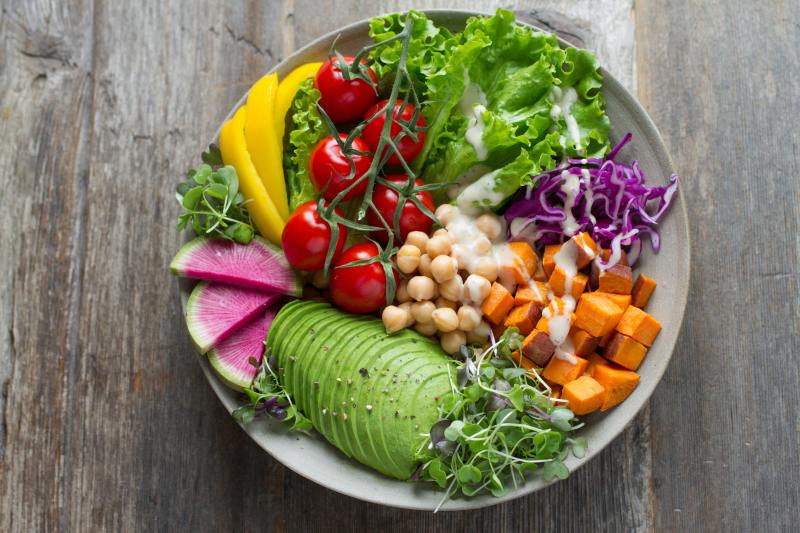In Stanford dining halls, it’s common to see meat alternatives served alongside the “Farm Burger” at lunchtime. Increasing awareness of the negative environmental and health implications of meat consumption has led to the popularization of ultra-processed plant-based products like Impossible and Beyond Meat. While these are great options to have available, they may not be the most effective or healthy alternative.
Rather than jumping ships from real to fake meat, we should let meat be meat and consume it sparingly. Let’s shift the emphasis from eating fake meat to reducing meat consumption and increasing unprocessed, whole-food protein sources that are better for our health and the environment.
With the global population projected to reach 9.8 billion by 2050, it is no secret that this rapid growth is putting serious strains on the environment and the global food supply. How will the Earth support another 2 billion people — 25% of our current population — when our current food system is already pushing the upper limits?
Not all sectors within our food system are created equal. Livestock farming, including grazing and the large-scale production of animal feed like corn and soy, is a chief climate offender: 14.5% of global greenhouse gas emissions and 29% of global freshwater use can be attributed to animal husbandry. Animal products provide only 18% of the world’s calories, but use 83% of global farmland and have disproportionately large footprints for erosion, antibiotic use, pesticides and water pollution.
In addition to environmental impacts, animal products also pose health risks. Red and processed meat are associated with increased risk of type 2 diabetes, cardiovascular disease, cancer and all-cause mortality.
Chicken is innocent in all of this, right? Chicken, a go-to “healthy” protein, is widely available across Stanford dining halls, but how healthy can it be when the animals themselves are so unhealthy? Chickens naturally live between five and 10 years. As discussed in Jonathan Safran Foer’s “Eating Animals,” today’s broiler chickens (chickens raised for meat) are slaughtered at six weeks old, largely because their Frankensteinish breeding and the appalling conditions of their upbringing (yes, including “free-range”) render them too sickly to survive much longer. They are pumped full of antibiotics that make them grow twice as large in half the time — their bodies grow faster than their bones can support, leading to a deluge of health problems — and contribute to the rise of antibiotic-resistant strains of bacterial infections. These methods are standard practice for pigs, cows and other factory farmed animals.
Long story short, the vast majority of animal products are of major environmental, health and ethical concern. We should shift our diets away from meat and towards unprocessed plant-based alternatives.
Prior to learning about the horrors of factory farming, which produces nearly 99% of U.S. meat, I ate meat at least twice a day. Since then, I’ve started transitioning away from meat. At breakfast I swap my once-beloved chicken apple sausage for Greek yogurt and nuts. I steer clear of the overplump drumsticks and chicken breasts that were previously a staple in my dining hall lunch regimen, opting for quinoa or garbanzo jambalaya. That is not to say I avoid meat altogether. Rather than cutting it out completely, I’ve focused on reducing my intake to no more than once per day and prioritizing fish and plant-based alternatives — a diet known as “flexitarianism.”
Part of the challenge of eating less meat is finding suitable alternatives. A few days after pointing my parents towards resources like “Eating Animals,” my mother called me to share her agreement that it was time to cut back on meat, and to tell me she had gone to the store and purchased an abundance of Impossible Meat and Beyond Burger. I worried I had set my parents on a dangerous trajectory; I hadn’t intended for them to switch over to a completely ultra-processed meat alternative–based diet. But this is the message many meat-eaters receive when they are told to eat less meat: stop eating meat and switch to ultra-processed plant-based “meats” like Impossible and Beyond Meat.
While these are certainly a step in the right direction for reducing climate impact, ultra-processed plant-based foods are more expensive and less healthy than unprocessed, natural protein sources like chickpeas, grains and nuts, which don’t contain added chemicals and refined oils. However, most of us who have grown up eating meat likely don’t think of these as proteins and don’t know how to incorporate them into balanced, satisfying meals that are part of a sustainable diet. Additionally, eating a diet heavy on processed meat alternatives masquerading as meat is difficult to maintain (as reflected by the declining plant-based meat market). You can only eat a plant-based burger so many times and in so many ways before it gets old and you revert back to meat, especially when meat is the direct reference point for taste and satisfaction. Flexitarians, and anyone interested in eating less meat, need to know that there are more options beyond fake meat.
There are many healthy, affordable options, and we should educate ourselves and each other on plant-based alternatives and how to prepare them as part of a sustainable, fulfilling and healthy diet. It’s easier than we think, and legumes, veggies and grains are often less expensive than meat and meat substitutes. One issue is that the limited variation of meatless options in the dining halls can become monotonous. However, demonstrating more interest in those options and providing feedback will encourage R&DE to explore more whole-food plant protein offerings. Finally, remember that this doesn’t have to be all or nothing — any reduction in meat-eating helps.
Kathryn Lyons ’23 is a senior from the East Bay majoring in Human Biology.
